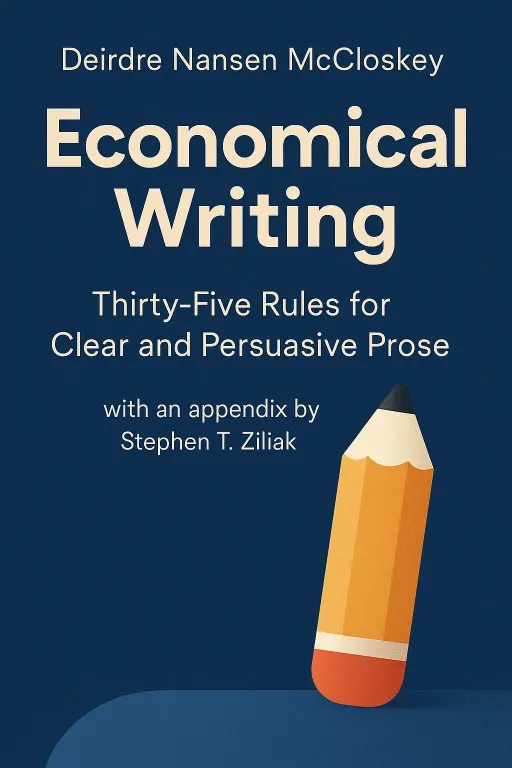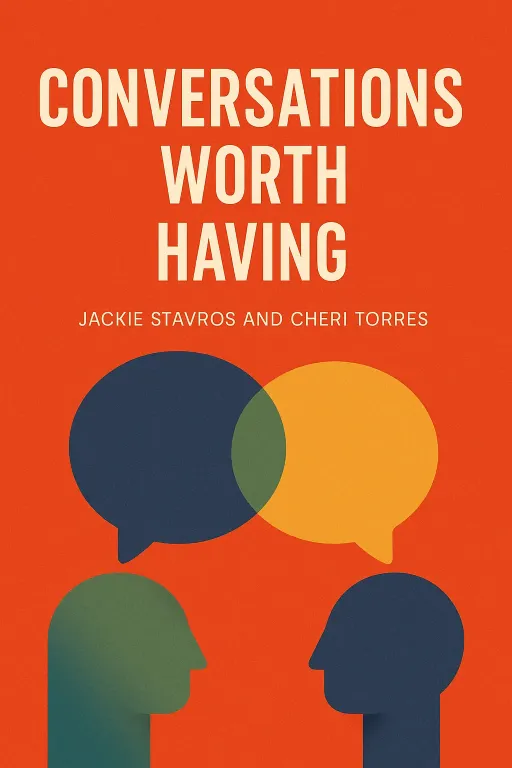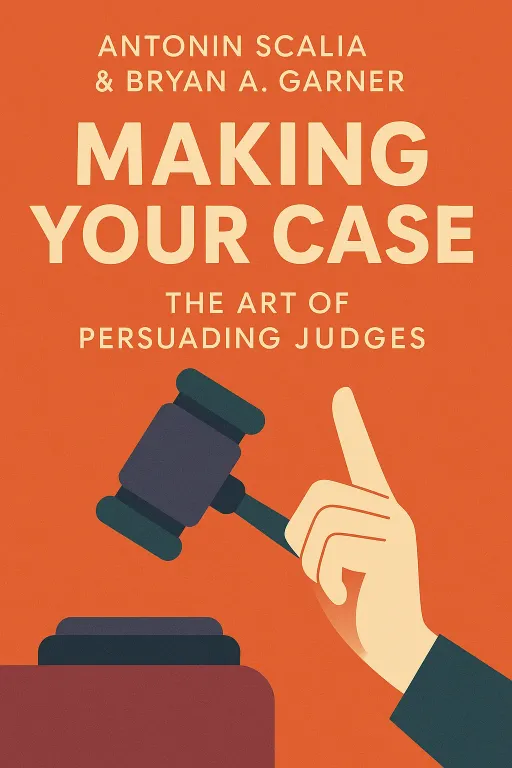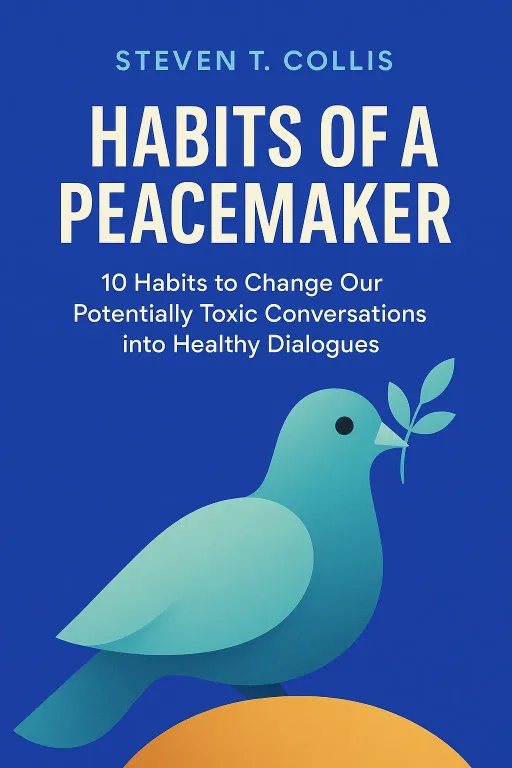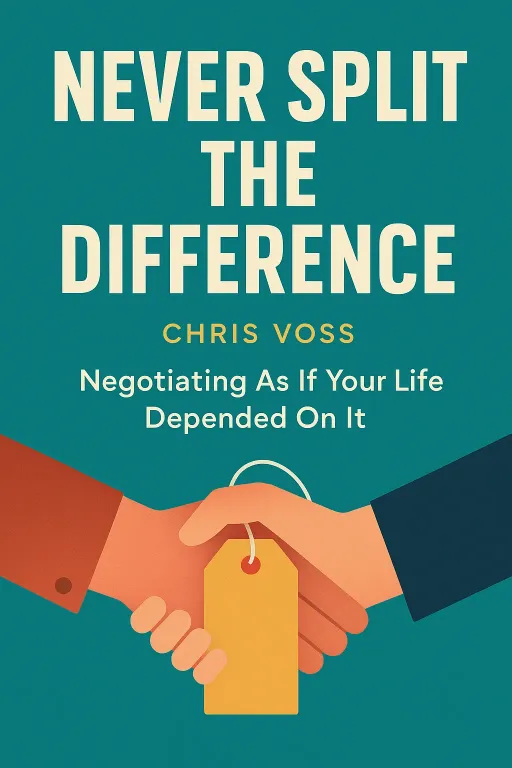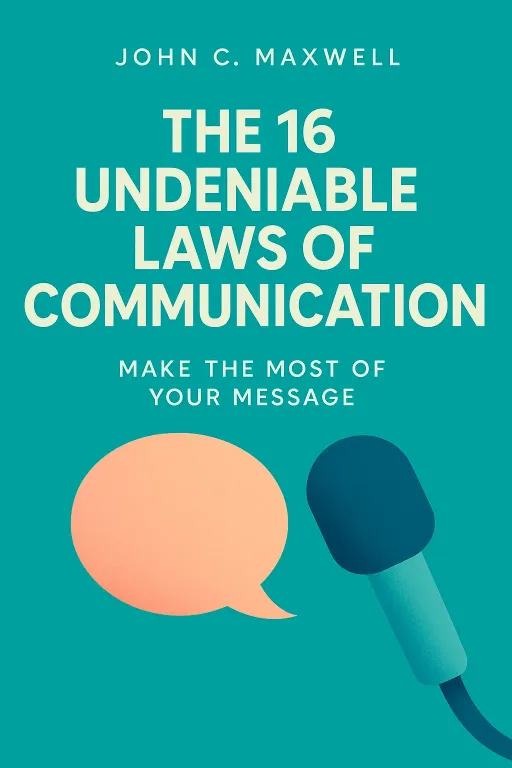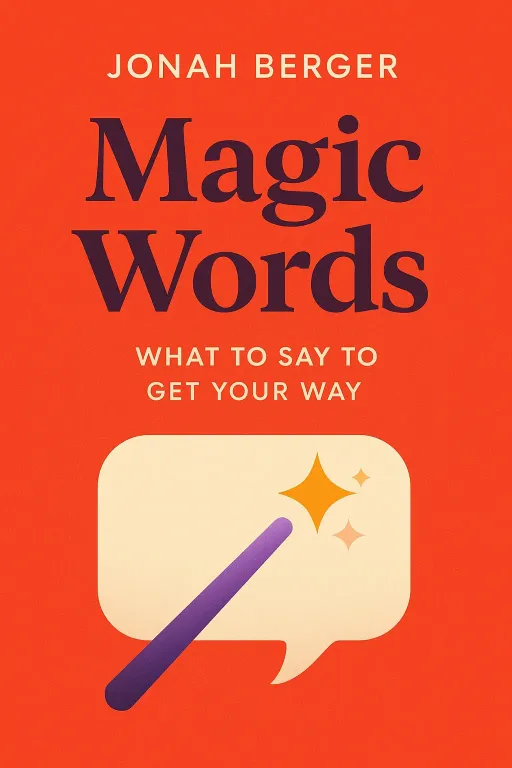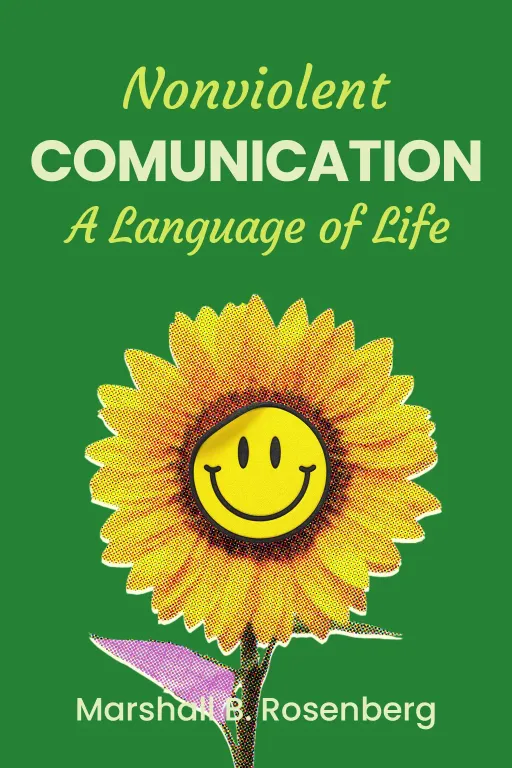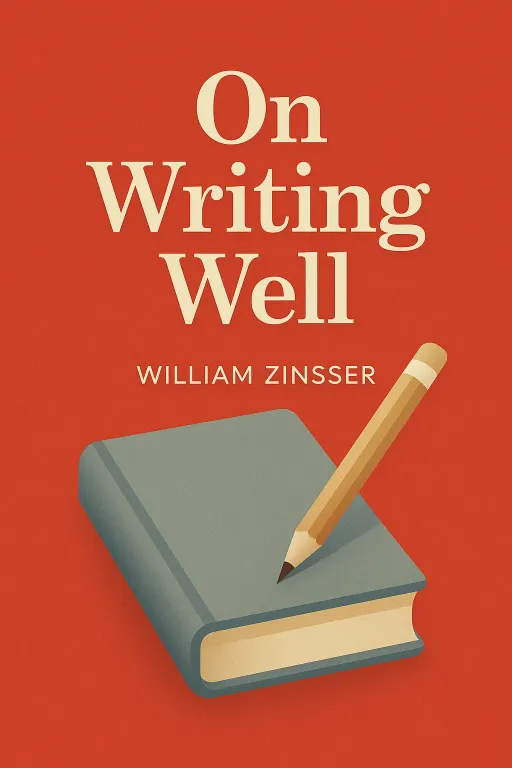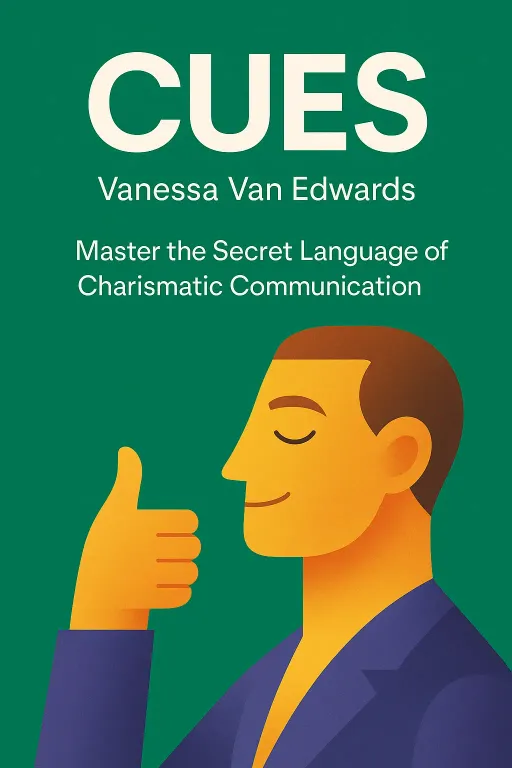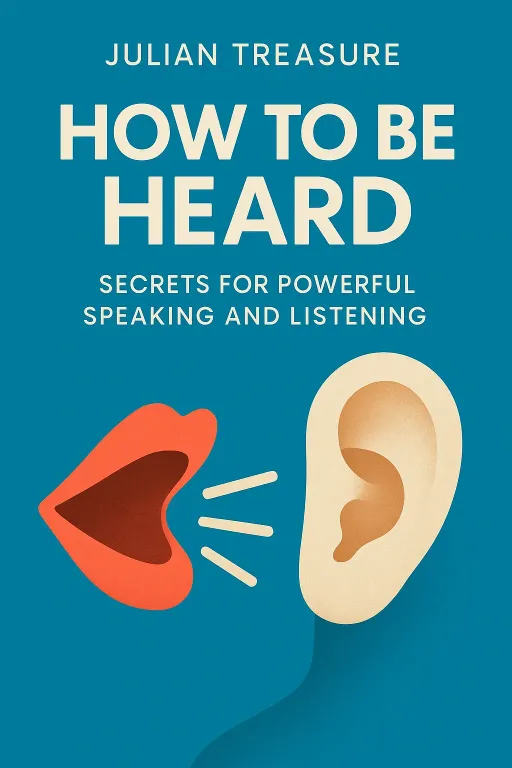
How Sound Controls You
11 minSecrets for Powerful Speaking and Listening
Golden Hook & Introduction
SECTION
Michelle: A city in California cut its crime rate by 15% without adding a single police officer. Their secret weapon? The sound of birdsong. Mark: Come on. You're telling me they just played some chirping noises and criminals decided to take up a new hobby? That sounds like something out of a cartoon. Michelle: It sounds like it, but it's a documented case. It turns out, what we hear might be more powerful than what we see, and most of us are getting it completely wrong. Mark: Wow. Okay, my interest is officially piqued. Where on earth does a story like that come from? Michelle: That wild story comes from How to be Heard: Secrets for Powerful Speaking and Listening by Julian Treasure. And it’s the perfect entry point into his whole philosophy. Mark: And Treasure is the perfect person to write this. He’s not just some academic; he started as a musician, became a top sound consultant for major brands, and his TED talks on communication have been viewed over 120 million times. The guy lives and breathes sound. Michelle: Exactly. And this book isn't just popular, it's critically acclaimed—it even won major audiobook awards. He argues that we're all losing the art of communication, and it starts with understanding the sound around us, both outside and inside our own heads. Mark: I like that. It’s not just about public speaking tips, it’s about the entire ecosystem of communication. Michelle: Precisely. That Lancaster, California story is the perfect illustration of his first big idea: the invisible architecture of sound that shapes our lives.
The Invisible Architecture of Sound
SECTION
Mark: Alright, you have to unpack this for me. How does birdsong stop a crime? I'm picturing a mugger getting distracted by a particularly melodic sparrow and just forgetting what he was doing. Michelle: It's a little more scientific than that, but not far off. The city of Lancaster had a downtown area, the BLVD, with a real crime problem. It just felt unsafe. So they hired The Sound Agency, which is Treasure's company, to design a soundscape. They installed over 70 speakers hidden along the street. Mark: And they just blasted bird noises? Michelle: It was more sophisticated. They used a mix of calming sounds—gentle, lapping water and, yes, carefully chosen birdsong. The key is that these sounds are designed to do something specific to our bodies: they entrain our heart rates downwards. They literally, physiologically, calm people down without them even realizing it. Mark: Whoa. So it’s a subconscious manipulation, but for good. Michelle: Exactly. And the results were staggering. The local sheriff reported a 15% drop in crime. Shopkeepers said the whole atmosphere of the street changed. People felt safer, more relaxed. It's a powerful demonstration of how sound affects us behaviorally. We think we're in control, but our environment is constantly nudging our actions. Mark: That's incredible! Just by changing the audio. Okay, a whole city is one thing, but how does this affect me in my daily life, say, at work? I don't think my boss is going to install a babbling brook next to the coffee machine. Michelle: He might want to after hearing this. Treasure points to one of the biggest modern culprits of bad soundscapes: the open-plan office. Research shows that in a noisy, open-plan office, productivity can be reduced by as much as two-thirds. Mark: Two-thirds? That’s not a small dip, that’s a catastrophe. I believe it, though. I've been there. The constant chatter, the phones ringing, someone’s loud typing… it’s impossible to focus. Michelle: It is. And Treasure quotes an office expert, Professor Jeremy Myerson, who has this brilliant analogy. He says, "The postman doesn’t enter your house unannounced and dump the post on your living room floor, but that’s exactly what happens in open-plan offices." Every unwanted conversation, every interruption, is like someone barging into your mental living room and making a mess. Mark: Oh, that explains everything about my last job! It felt like a constant assault. But some people say the 'buzz' of an office is good for energy, right? That it fosters collaboration. Michelle: And that's a crucial distinction Treasure makes. There's a difference between a positive, energetic buzz and distracting, unpredictable noise. A steady hum can be fine. It's the variable sounds—the half-heard conversation, the sudden laugh, the phone alarm—that shatter our concentration. Our brains are wired to pay attention to new sounds, as a survival mechanism. We can't help it. So we're not just being unproductive; we're in a state of constant, low-grade alert, which is exhausting. Mark: So the sound around us is either calming us down like in Lancaster, or stressing us out and tanking our productivity like in most offices. It's a hidden layer of control over our lives. Michelle: It's physiological, psychological, cognitive, and behavioral. It affects our heart rate, our mood, our ability to think, and our actions. And most of us wander through life completely oblivious to it. Mark: It's wild how our external sound environment controls us. But Treasure doesn't stop there, does he? He says the real problem is often internal. What are these 'dark side' habits he talks about?
The Dark Side of Dialogue
SECTION
Michelle: This is where the book gets really personal and, for many people, deeply uncomfortable. Treasure argues that even if you're in a perfectly designed soundscape, your communication can be completely sabotaged by your own internal "leeches." Mark: Leeches? That's a strong word. What does he mean by that? Michelle: He identifies four common emotional drivers, rooted in fear, that literally suck the life and power out of our conversations. They are: Looking Good, Being Right, People-Pleasing, and Fixing. Mark: Okay, a few of those sound familiar. But hold on, 'Fixing' sounds like a good thing. If my friend is upset, I want to help them fix the problem. Isn't that what you're supposed to do? Michelle: It seems helpful, but Treasure argues it's often a deeply selfish act. It’s not about helping the other person; it’s about making our own discomfort with their negative emotions go away. We can't stand to see them in pain, so we rush in with solutions to make ourselves feel better. Mark: I never thought of it that way. You're saying it's more about my comfort than their healing. Michelle: Exactly. And to show how damaging this can be, he tells this incredibly poignant story about his own family. His aunt, as a little girl, was told she was going to have a baby brother. She was ecstatic. The family prepared the nursery, she picked out toys, her whole world was filled with this wonderful anticipation. Mark: Oh, I have a bad feeling about where this is going. Michelle: Her parents went to the hospital and came back a few days later… alone. They said nothing. The little girl was immediately sent to stay with relatives for a few weeks. When she returned, the nursery had been completely redecorated back into a spare room. The baby was never mentioned again. Mark: Wow. That's heartbreaking. Michelle: Decades later, she found out the baby, her brother, had been stillborn. Her parents, in a well-intentioned act of 'fixing,' tried to protect her from the pain. But what they actually did was deny her the emotions she needed to feel. They taught her that grief is something to be hidden, that her feelings didn't matter. It left a scar of confusion and loneliness that she said made it harder for her to trust people for the rest of her life. They were trying to fix her pain, but they broke a bond instead. Mark: That story is devastating. And it makes the point perfectly. Rushing to 'fix' can deny someone the space they need to actually feel and process something. You're not helping, you're obstructing. Michelle: You're obstructing. And the other leeches are just as insidious. There's 'People-Pleasing,' where you say yes when you mean no, just to be liked. There's 'Looking Good,' where you're so busy composing your next brilliant comment in your head that you're not actually listening to what's being said. Mark: That 'Looking Good' leech sounds a lot like my internal monologue during most meetings. It's a constant performance. Michelle: It is! And then there's the big one, the one that I think powers half the internet: 'Being Right.' The need to be correct at all costs, even if it means destroying a relationship. Mark: That 'Being Right' leech feels like the official fuel of social media. It's not about connection; it's about winning the argument, making the other person wrong so you can feel right. Michelle: Treasure quotes the therapist Harville Hendrix, who puts it so bluntly: "Do you want to be right, or do you want to be in a relationship? Because you can’t always have both." You can't cuddle up with 'being right' at the end of the day. Mark: So how do we fight these leeches? They feel so ingrained, so automatic. Michelle: Treasure uses a classic Zen story to show the way. A university professor, a man full of his own knowledge and opinions, goes to visit a Zen master named Nan-in to learn about Zen. Mark: Okay, I can already see the 'Looking Good' and 'Being Right' leeches all over this professor. Michelle: Absolutely. Nan-in welcomes him and begins to serve tea. He fills the professor's cup to the brim… and then he just keeps pouring. The tea overflows, spilling all over the table. The professor, agitated, finally shouts, "It's full! No more will go in!" Mark: And what does the Zen master say? Michelle: Nan-in calmly looks at him and says, "Like this cup, you are full of your own opinions and speculations. How can I show you Zen unless you first empty your cup?" Mark: Oof. That's a direct hit. You can't receive anything new if you're already full of yourself. Michelle: That's the first step. Recognizing that you're walking around with a full cup—full of the need to look good, to be right, to fix everything. The awareness itself is what starts to drain the leeches' power. It’s about creating space, both in the world around you and inside your own mind, for real communication to happen.
Synthesis & Takeaways
SECTION
Michelle: So, when you put it all together, Treasure's message is incredibly holistic. It’s not enough to just manage the noise in your office or on your street. You also have to manage the 'noise' in your own head—the leeches of ego and fear. Mark: It’s a two-front war. You have to curate your external environment and your internal state. Powerful communication happens when you create a clear channel, both externally and internally. Michelle: That's the core of it. You can't just learn a few speaking tricks. You have to become a conscious architect of your entire communication world. Mark: So what's one simple thing someone can do, starting today, after hearing this? It feels like a lot to tackle at once. Michelle: He offers a lot of great exercises, but one of the most practical is an acronym for listening: RASA. It’s a simple tool to use in your next conversation. Mark: RASA. Okay, what does it stand for? Michelle: It's simple. R is for Receive. Just pay attention. Put your phone down and actually look at the person. A is for Appreciate. Make little encouraging noises, like 'hmm,' 'oh,' 'okay,' to show you're engaged. S is for Summarise. This is the power move. Periodically say, "So, what I'm hearing is..." It confirms you're understanding and makes the other person feel truly heard. Mark: And the last A? Michelle: The last A is for Ask. After you've done all that, ask clarifying questions. It's a simple framework to fight off those leeches in real-time and shift from waiting to speak to actually listening. Mark: I love that. It’s a concrete action plan. And maybe ask yourself in your next conversation: Am I listening to understand, or am I just listening to reply? That one question from the book, from Stephen Covey, really stuck with me. Michelle: A great question to end on. It changes everything. Mark: It really does. Michelle: This is Aibrary, signing off.
